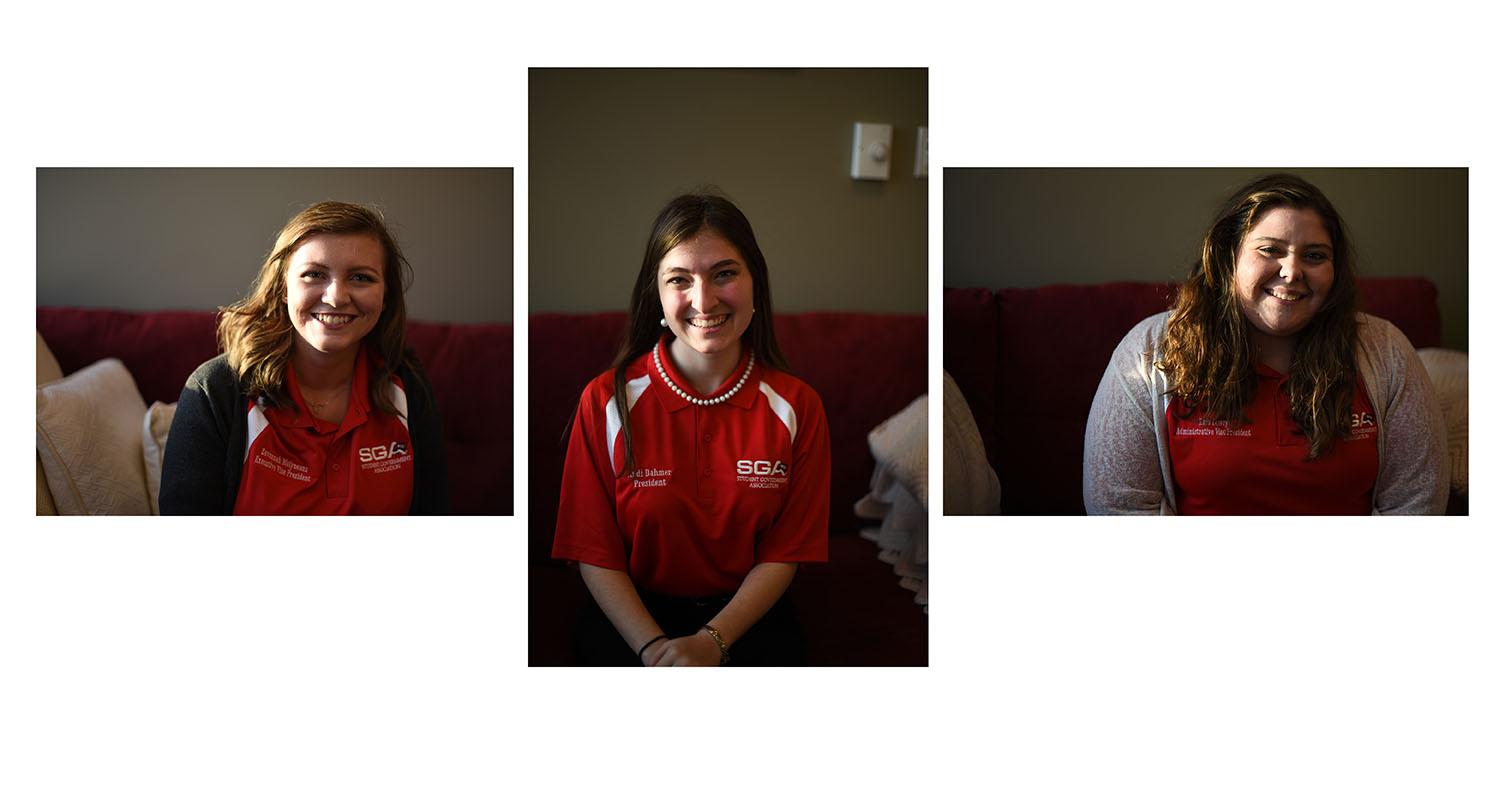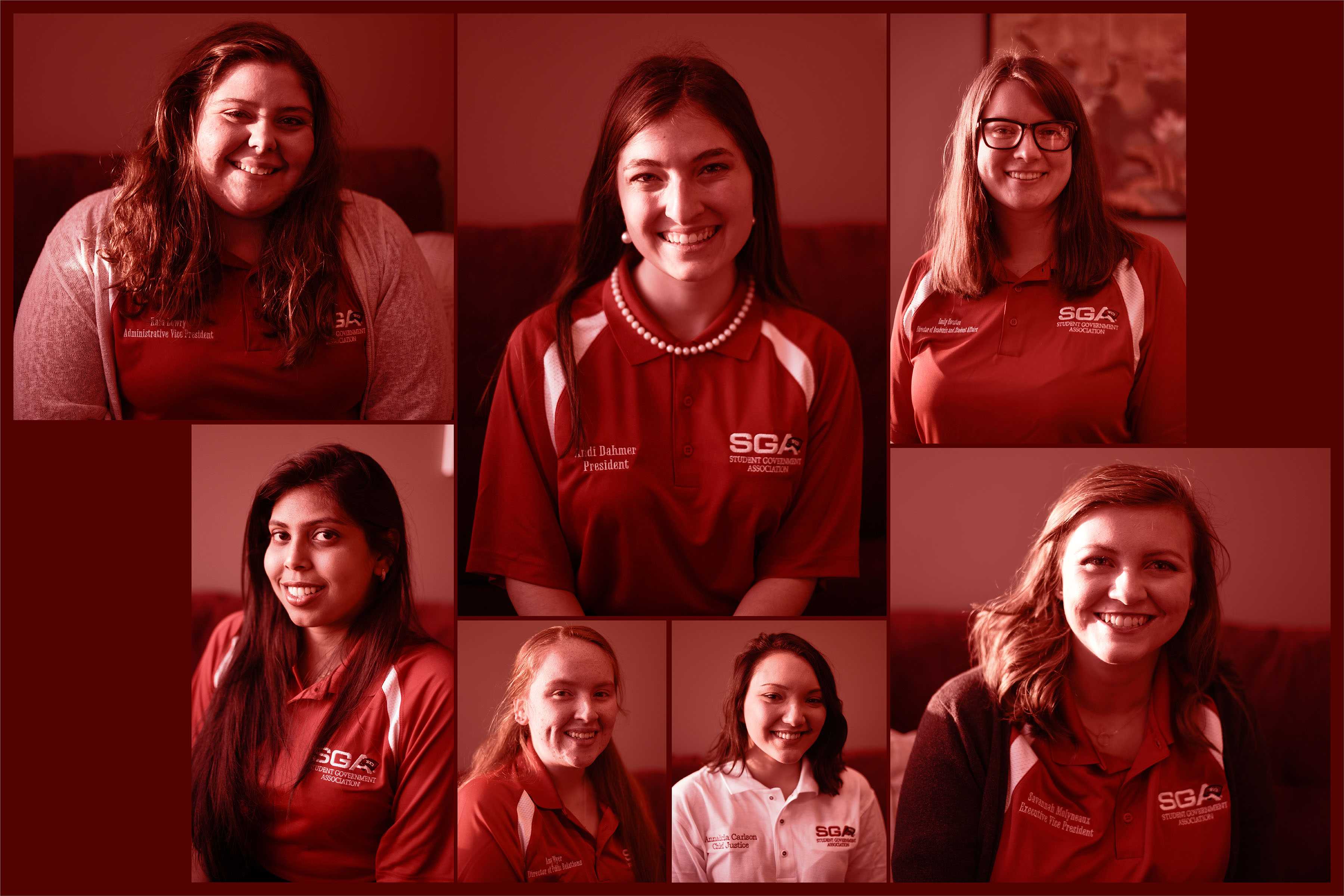The Kentucky General Assembly currently ranks 42nd in the country in female representation, according to the Center for American Women and Politics at Rutgers University. Though women comprise over half of Kentucky’s population, there are roughly five men to everyone one woman in the Kentucky House of Representatives and and nine men for every one woman in the Kentucky Senate.
That may soon change.
Following the second annual women’s marches and the recent push for women in leadership, the polls in the upcoming 2018 elections will include more women running for office than ever before. According to Rutgers, more than 500 women in the U.S. are running for office for a major party in 2018. WCPO TV reported that nearly 100 women filed to run for state offices in Kentucky this year—more than ever before. Even so, male candidates still outnumber female candidates four to one.
The Student Government Association already has a majority female executive cabinet. SGA President and Student Regent Andi Dahmer, Executive Vice President Savannah Molyneaux and Administrative Vice President Kara Lowry comprised the first all-female executive ticket elected to the SGA. Their eight-person executive board is also majority female. The board’s three other women are Emily Houston as director of academic and student affairs, Smita Peter as director of information technology and Amy Wyer as director of public relations.
But despite the election victories of these women, they said they still face hardships in their roles based on their gender. We sat down with Dahmer, Molyneaux and Lowry to discuss their struggles, victories, and goals for the new semester.
Editor’s Note: The following Q&A has been edited for clarity and length.

From left to right: Savannah Molyneaux, Andi Dahmer and Kara Lowry
Do you ever feel like people look down on you because you are a woman?
Savannah Molyneaux: I definitely think that we are looked down upon even though we have worked very hard for these offices. Hearing people doubt us and the work that we put in is disappointing for sure, but at the end of the day we all know that we have worked very hard for these positions, and we are doing what is right.
Andi Dahmer: It’s so disappointing to me when different men think that we cannot also represent their issues. We are very willing. We have open office hours, and we really want to speak to everyone about things that we can resolve. We represent all students. I also think it’s really disheartening when you are assertive and people do not take you as seriously, or they assume you’re being aggressive, whereas if I were to just put on men’s clothing and tie my hair back, I’d feel like I could say things in the same tone of voice and people would not be frustrated.
What do you think about the recent women’s marches and the recent push for more women to run for office in 2018?
Savannah: I think it’s absolutely amazing. I’m very excited that this issue is at the forefront, but I never realized how difficult [holding an elected office as a woman] can be.
Kara Lowry: I thought the hardest part would be getting elected, but that’s not been the hardest part at all. So that also gives me an even greater respect for women that do it at a national or a state level because it definitely is a lot of hard work trying to [be] taken seriously and being treated the same as a male in leadership would be.
What are your goals for this semester?
Kara: We are currently working on a Women in Leadership forum. We are having women in different leadership positions on campus come speak. I think it is going to be a really great event to help empower women on campus to pursue any leadership positions that they’re wanting, no matter [if] it be in their sorority, in student government or any other organizations that they’re a part of.
Savannah: We are launching a sexual assault awareness project with the Talisman. I think having it in the Talisman would be a really good way to have outreach on the campus. I think it’s a great way to draw attention to the issue of sexual assault but also help people get some closure in their own in their own issues with it.
Andi: I feel like we have a lot of perspective as female leaders. There are a lot of issues that we try to tackle proactively this year just because of our experience in this position and our experience throughout our time here on campus. I feel like that gives it a lot of sensitivity to these issues more so than [a man] who is trying to look at them from [a secondhand perspective] because some of us have first hand experience with this sort of discrimination.
Q: What did you accomplish last semester that you are most proud of?
Kara: One thing that I worked on last semester was the Go with the Flow program. We helped provide free tampons and pads in five buildings on campus: DSU, Cherry Hall, South Campus, Grise and Snell. I helped fund that so they can restock every single week.
Savannah: Parking ticket late fee forgiveness in combination with donations to the food pantry. We are now doing this project every semester, so students can donate cans of food to get the late fee off their parking ticket.
Andi: My favorite accomplishment from Senate as my role as student body president was definitely getting the DACA resolution passed. I think that it is really important that those students have representation and they don’t feel alone, especially those who are Dreamers. It shows that our school and our students support those other students. From the student regent side of things, I was really proud that we passed a resolution regarding student diversity, equity and inclusion in the Board of Regents.



